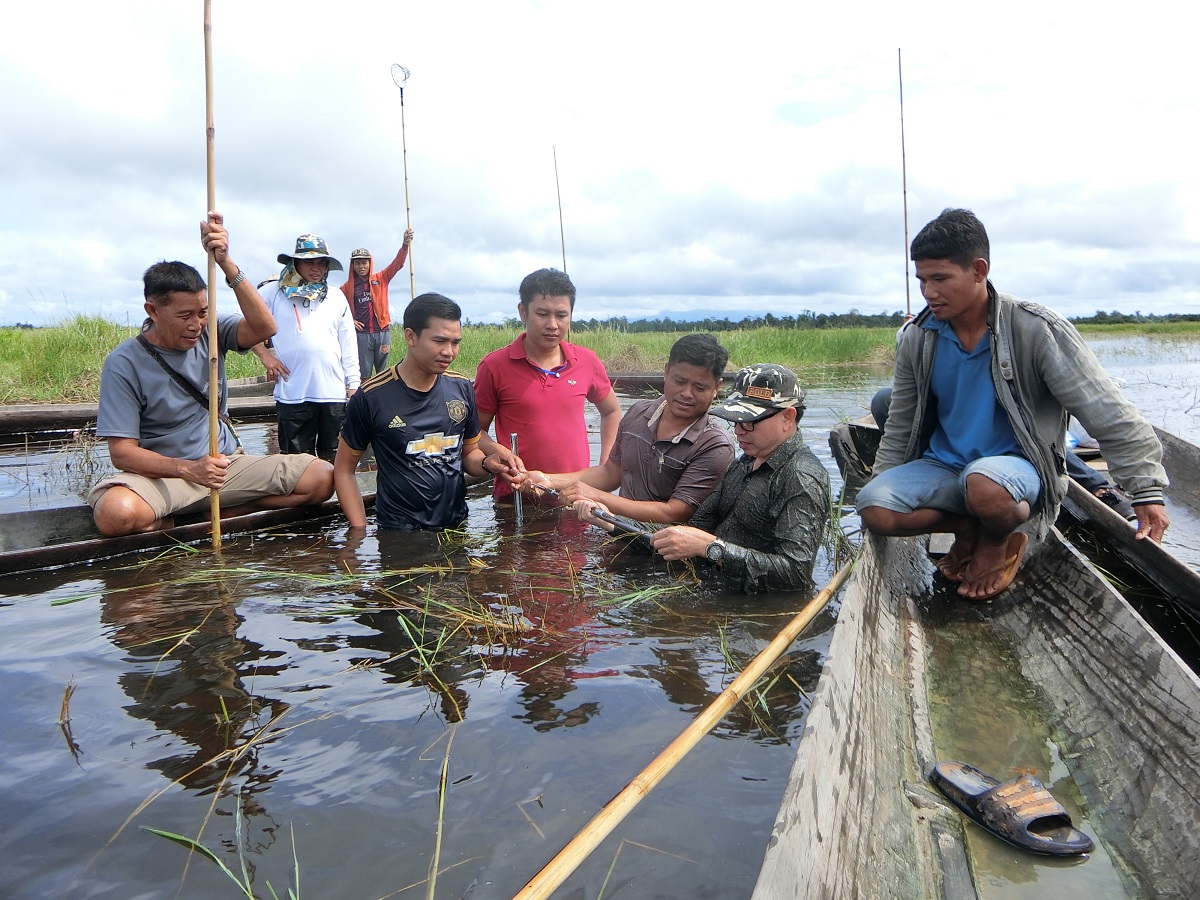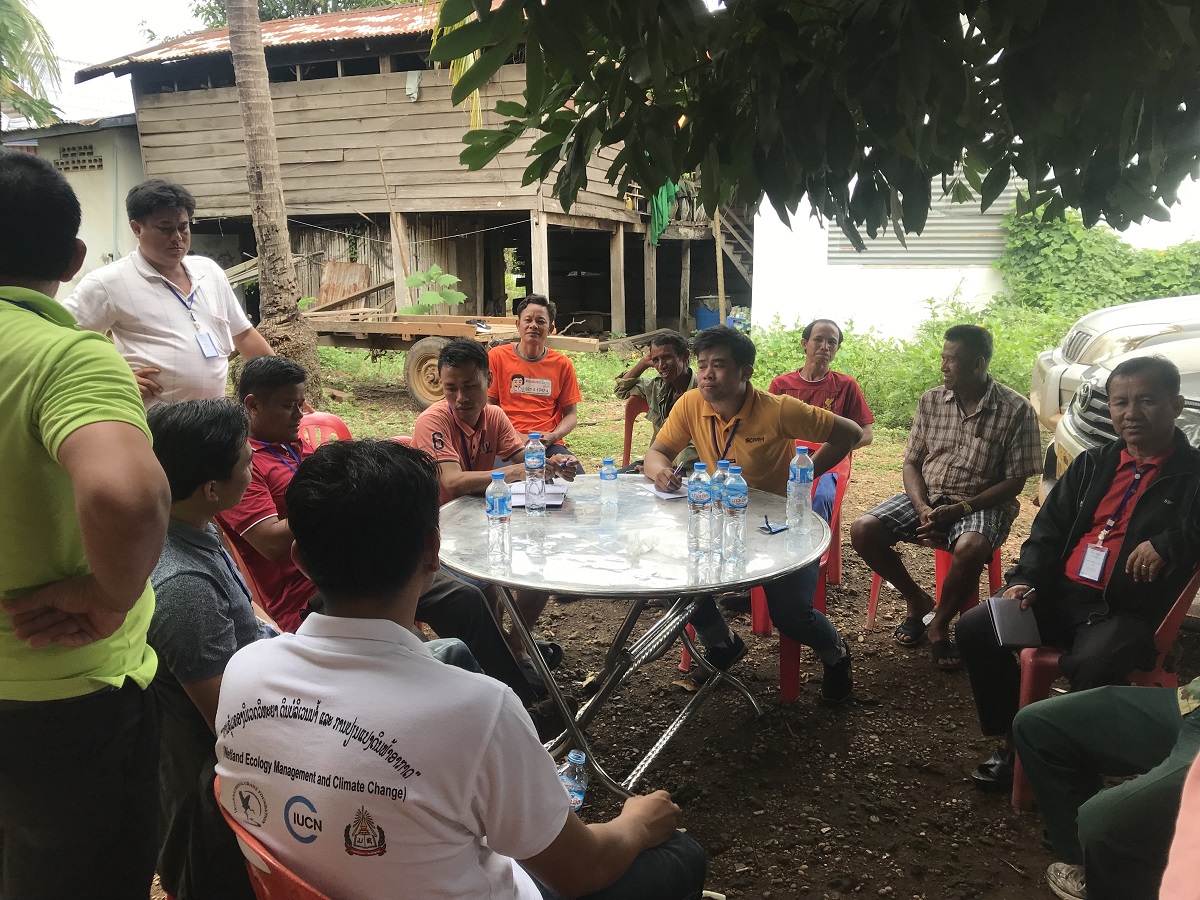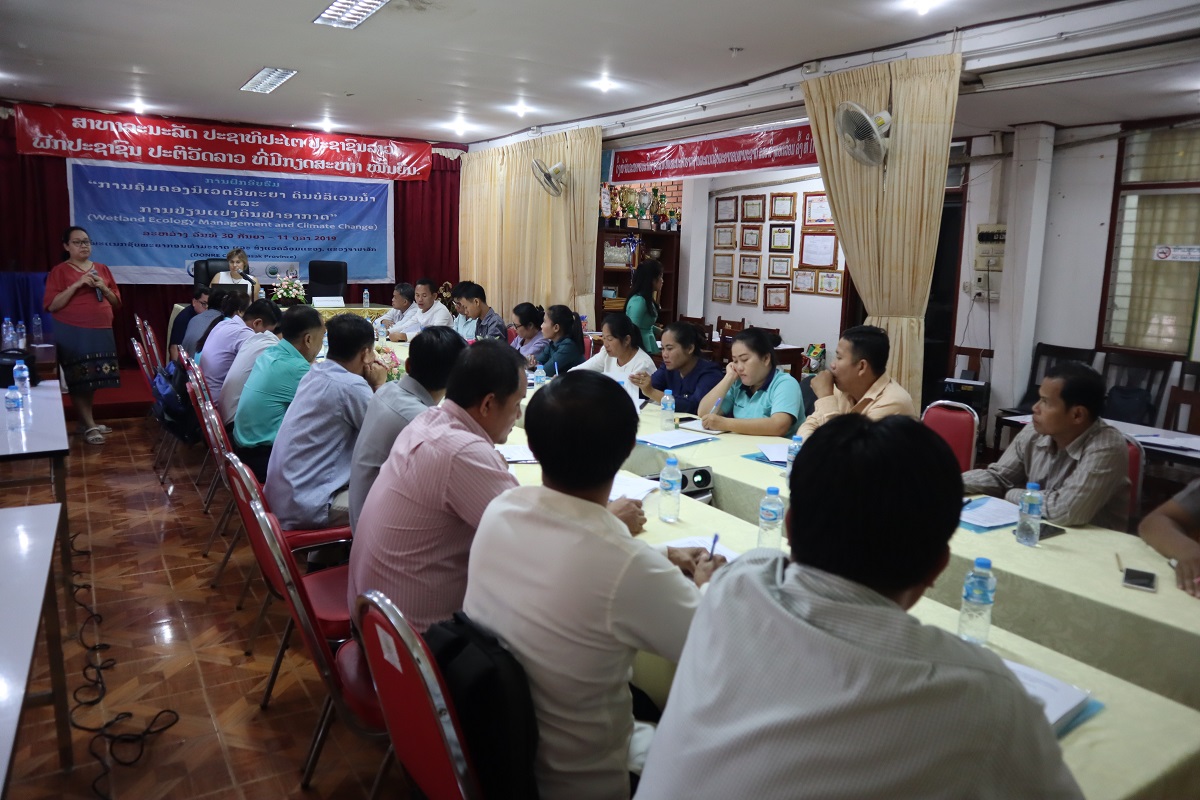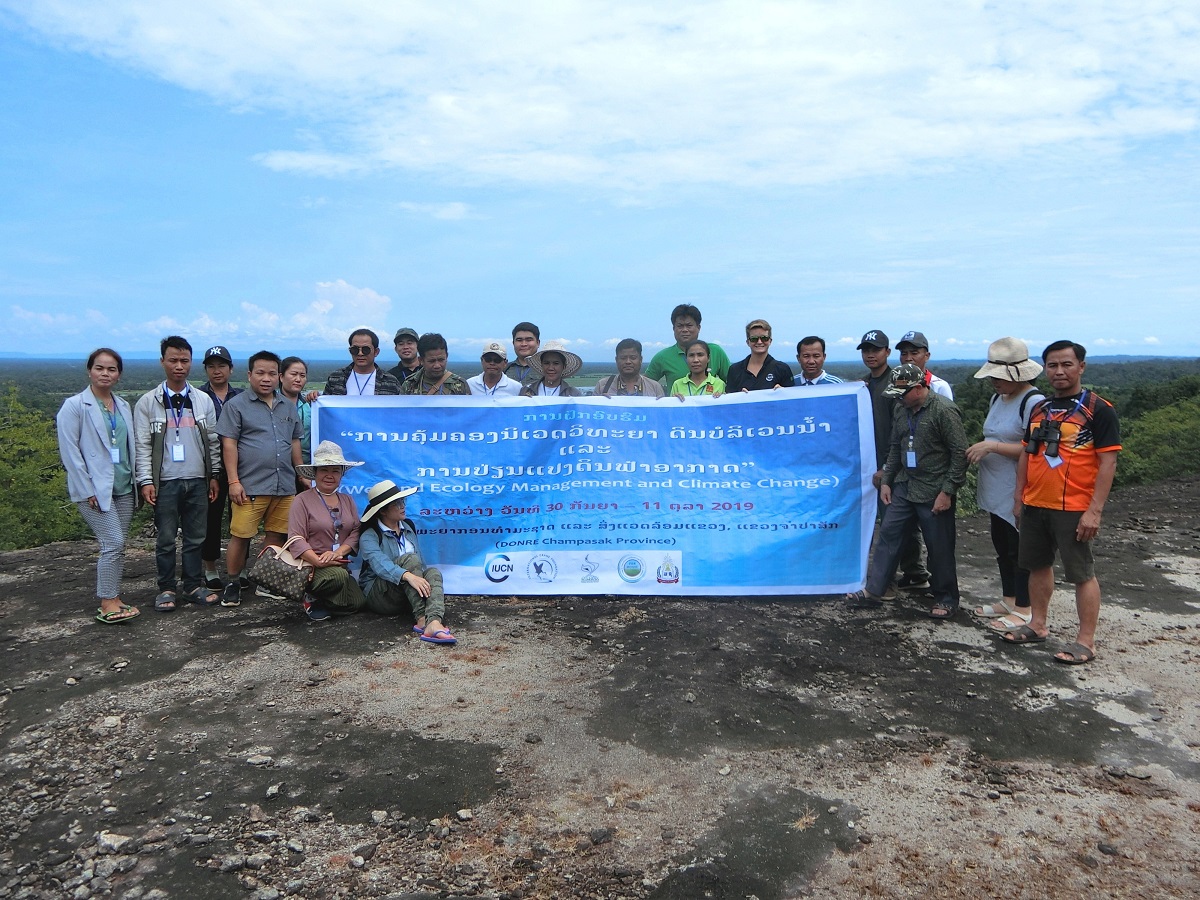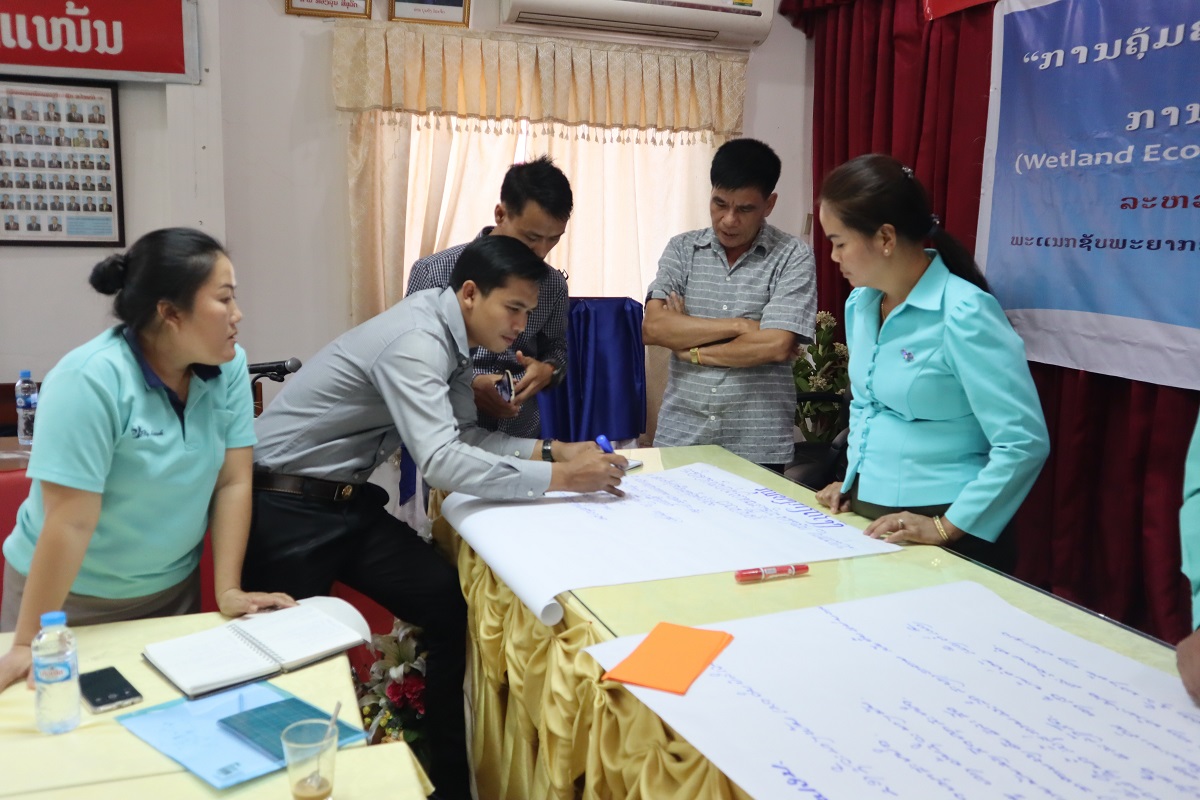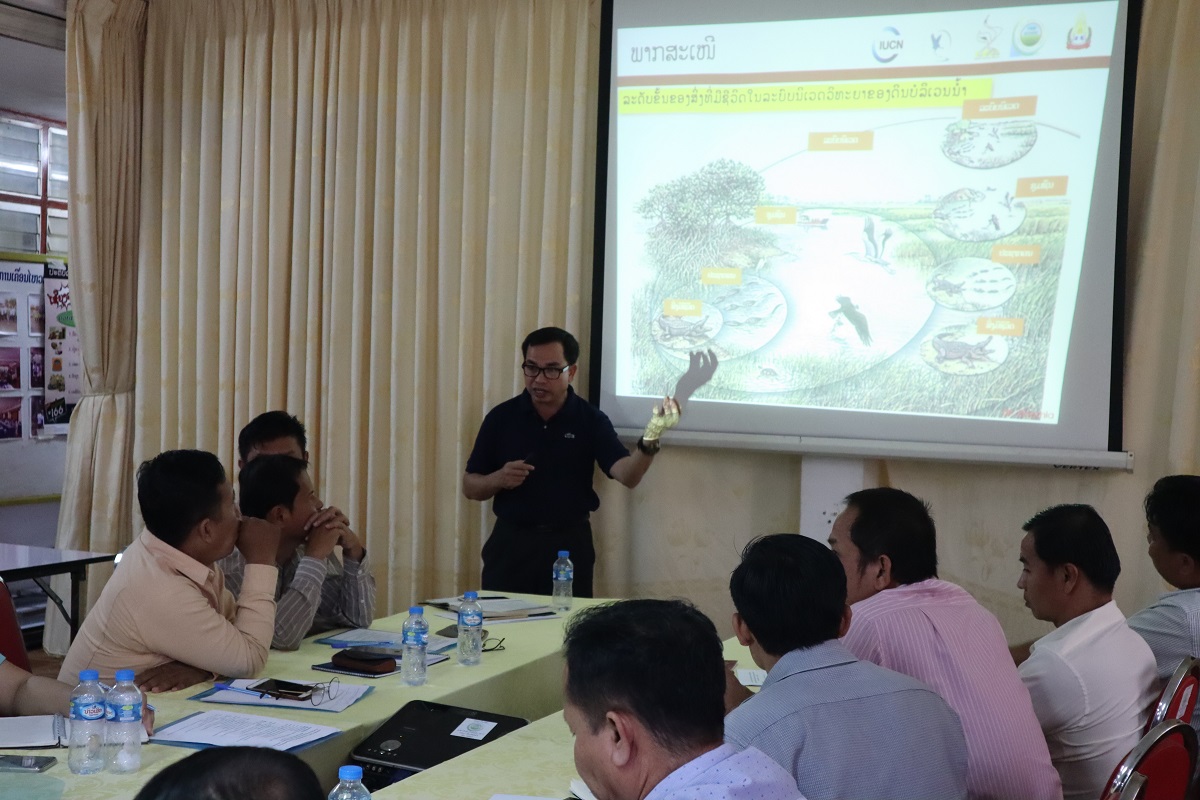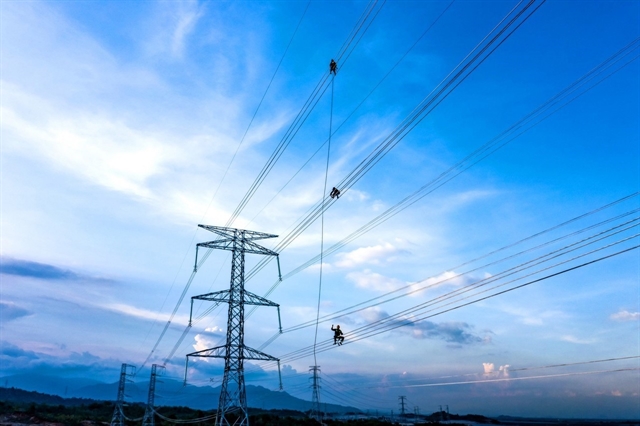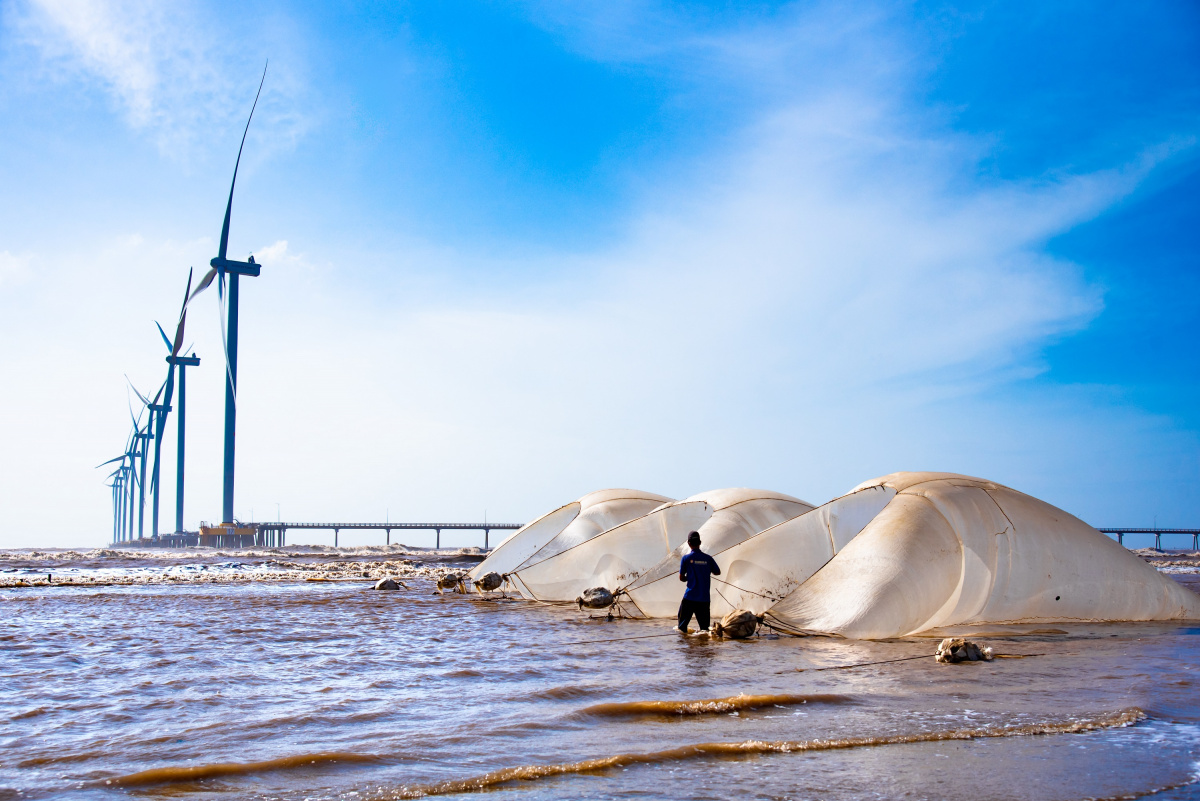IUCN conducts wetland management training for Lao environment officers
Mekong Wetlands University Network and IUCN Lao PDR recently organised a 11-day training on wetland ecology and management for environment officers working in Beung Kiat Ngong and Xe Champhone Ramsar sites in Pakse, Champasak Province.
31 site managers and staff from the district and provincial environment offices and agriculture and forestry departments attended the training.
Held as part of the Mekong WET: Building Resilience of Wetlands in the Lower Mekong Region project, the training aimed to enhance environment officers’ knowledge and skills on wetland management and climate change adaptation. The training included a two-day field trip to the Beung Kiat Ngong Ramsar site.
Professors from the National University of Laos (NUoL) with two professors from Viet Nam and Champasak University, who underwent training as part of the Mekong Wetlands University Network, facilitated the training.
“At these workshops, participants will learn about biodiversity and wetland resource management, as well as wetland hydrology. They will also be introduced to climate change adaptation tools for valuating ecosystem services and assessing climate vulnerability,” said Dr. Khamla Inkhavilay, lecturer and researcher at NUoL’s Faculty of Natural Sciences.
During their field practice, workshop participants evaluated the ecosystem health of the Beung Kiat Ngong Ramsar site and its connection with surrounding ecosystems. They observed birds and other wildlife as part of a wetland survey, and measured the physical characteristics of the soil and waters throughout the site.
As part of their data collection exercise, the participants prepared their own questionnaires and conducted interviews in the villages. These interviews focused on gaining a better understanding of the benefits that wetlands provide to local communities.
“It is important to maintain the health of all ecosystems as they enhance local livelihood activities such as farming. Changes in precipitation patterns will affect all these ecosystems as well as human livelihoods, ” said Somvilay Chanthalounnavong, lecturer at NUoL’s Research Division and Department of Watershed Management and Land Use.
The training also included an exercise on analysing and developing wetlands management plans. Using the collected data from the field, the participants developed draft management plans for various topics.
When reporting back to the group, participants highlighted the many intricacies of the wetland in relation to the site’s resource use, biodiversity, soil content and hydrology. The management plans also emphasised the importance of using a community-based participatory approach.
Over the next few months, Mekong WET will build on the results of the Climate Change Vulnerability Assessments completed last year and conduct adaptation-planning workshops for the two Ramsar sites. The workshops aim to define suitable Ecosystem-based Adaptations strategies, such as habitat restoration, for implementation at each site to increase climate resilience within the wetland and its surrounding communities.
__________________________
About Mekong Wet
Funded by the International Climate Initiative (IKI) of the German Federal Ministry for the Environment, Nature Conservation, Building and Nuclear Safety (BMUB), the “Mekong WET: Building Resilience of Wetlands in the Lower Mekong Region” project aims to build climate resilience by harnessing the benefits of wetlands in Cambodia, Lao PDR, Thailand, and Viet Nam. Mekong WET, to be implemented until 2020, will help these countries address their commitments to the Ramsar Convention, an international treaty for the conservation and sustainable use of wetlands and to achieve the Aichi Biodiversity Targets. The project is also supporting the Indo-Burma Ramsar Regional Initiative (IBRRI) and the implementation of the IBRRI strategic plan 2019-2024.
